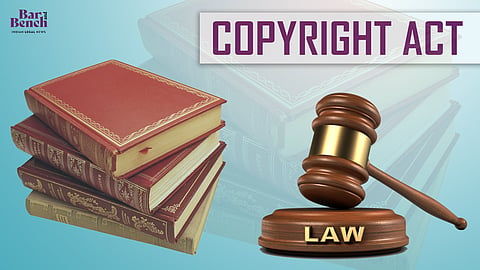
- Latest Legal News
- News
- Dealstreet
- Viewpoint
- Columns
- Interviews
- Law School
- Legal Jobs
- हिंदी
- ಕನ್ನಡ

The Delhi High Court recently observed that while no one can claim copyright in scriptures like Bhagavad Gita or Bhagavatam, any explanation, adaptation or dramatic work created out of these would be entitled to copyright protection.
Justice Prathiba M Singh said that there can be no objection in the actual reproduction of the text of Bhagavad Gita or other spiritual books, but copyright law would apply to the manner in which they are interpreted by different Gurus and spiritual teachers.
“There can be no copyright claimed in the Scriptures. However, any adaptations of the said work including providing explanation, summary, meaning, exegesis/interpretation or creating any audio-visual works for eg, television series like Ramanand Sagar’s Ramayana or BR Chopra’s Mahabharata; dramatic works created by drama societies based on scriptures etc, being transformative works, would be entitled to copyright protection - being original works of the Authors themselves,” the Court said.
The Court made these observations while dealing with a suit for copyright infringement filed by Bhaktivedanta Book Trust. The trust was established by Srila Prabhupada – the founder of International Society for Krishna Consciousness (ISKCON).
The Court was told that Prabhupada was a renowned scholar, philosopher, and cultural ambassador who spread the message of various Hindu scriptures in India and abroad.
It was stated that he wrote gave various lectures and published books which are read by devotees in several languages. Many of these works were stated to be the simplified religious books and scriptures which made it easy for the common man to understand.
It was contended that copyright in all these works rested with the author which, after his death in 1977, has been transferred to the plaintiff-trust.
The plaintiff sought an injunction order against four websites, five mobile applications and four Instagram handles which uploaded and communicated to the public the copyrighted work of the plaintiff.
Justice Singh considered the case and noted that there has been a large-scale infringement and piracy of the plaintiff’s work.
“A perusal of the record would show that the books being made available by the Defendants 1 to 14 are complete reproductions of the works of the Plaintiff, which were authored by Bhaktivedanta Swami Prabhupada, ‘Srila Prabhupada’. These are not mere reproductions of the original scriptures as it is, i.e., the shlokas but their अनुवाद (Anuvaad) and तात्पर्य (Tatparya), summary, introduction, preface, cover etc., have all been reproduced,” the Court said.
Such piracy of the copyrighted works cannot be permitted and if such piracy goes unchecked, the copyright in the works would be considerably diluted leading to immense loss of revenues, the single-judge opined.
She, therefore, passed an ex-parte interim injunction order against the defendants and restrained them from infringing the copyrighted works of the plaintiff.
Justice Singh also ordered Google and Meta to take down the applications and pages.
The Court further directed the authorities to pass blocking orders against these websites.
Advocates Saikrishna Rajagopal, Deepshikha Sarkar and Bhanu appeared for the plaintiff Bhaktivedanta Book Trust.
Advocates Debarshi Dutta, Mrinal Ojha, Anand Raja, Tanya Chaudhry and Shivam Tiwari represented Godday.com.